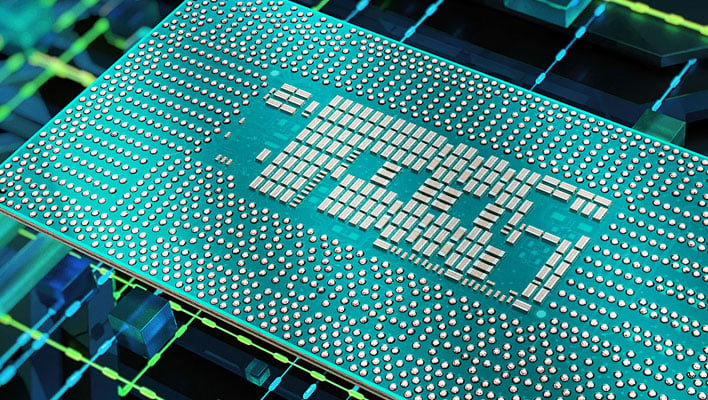Intel Raptor Lake Mobile 14-Core Chip Breaks Benchmark Cover, Bests Core i9-12900HK

Intel's latest generation Alder Lake processors haven't even had time to fully stretch their legs yet, but even so leaks are already starting to point towards what comes next: 13th Gen Raptor Lake. It makes sense when you consider that just last week, Intel CEO Pat Gelsinger doubled down on the chip maker's relentless pursuit of Moore's Law.
This is a different Intel than the one before Gelsinger's return. Or at least it appears to be—Alder Lake can be considered a successful launch that lived up to the pre-release hype, and looking ahead, Intel has laid out an aggressive roadmap across several different nodes leading into what it calls the angstrom era. Intel even claims to be ahead of schedule, saying the manufacturing timeline for its Intel 18A node is now slated for the second half of 2024 instead of 2025 as originally planned.
Good stuff, if it all works out. Before transitioning to the angstrom era, however, Intel still has at least two processor architectures on tap. One of those is Meteor Lake, which will be built on the Intel 4 node, and other is Raptor Lake built on the same Intel 7 node as Alder Lake.
As we wait for Raptor Lake for arrive (later this year), it's starting to make unofficial benchmark cameos. The most recent one is a listing that popped up at UserBenchmarks.
What's on display is a mobile Raptor Lake-P processor in engineering sample (ES) form. Either this test chip doesn't have a model designation yet, or UserBenchmark is unable to identify it. Either way, we're looking at a 14-core/20-thread mobile processor with a 2.5GHz base clock and 4.2GHz turbo frequency, with Iris Xe graphics along for the ride.
It's said Intel will double the number of E-cores with Raptor Lake, though it will depend on the actual model. In this case, we're likely looking at six P-core and eight E-cores, which is the same configuration as the existing Core i9-12900HK.
The unidentified Raptor Lake part is paired with 16GB (2x8GB) of Hynix DDR5-6400 memory. Other parts of the test bed include a 250GB WD SSD and Windows 11. It scored 202 points in the UserBenchmark's single-core test and 2,052 in the all-core test.
To put that into perspective, the average bench score for a Core i9-12900HK is 185 in the single-core test and 1,885 in the multi-core test. So based on this early Raptor Lake run, the next-chip posted a 9.2 percent higher single-core score and an 8.9 percent higher multi-core score.
Raptor Lake is faster and water is wet, news at 11, right? Sure, but it's interesting to see an early benchmark leak perform this well. Additionally, the average 4.2GHz turbo clock that the UserBenchmarks lists for the Raptor Lake CPU is 100MHz slower than the 4.3GHz average turbo frequency of the Core i9-12900HK.
That's pretty impressive. It's also just a single benchmark, so we can't draw any real conclusions out of this. Nevertheless, this is encouraging showing for Raptor Lake in mobile form.



